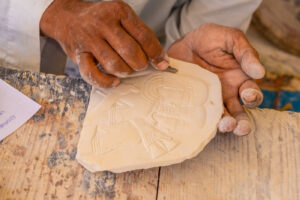Luxor
Nestled along the serene banks of the majestic Nile River, Luxor stands as an eternal testament to the grandeur of ancient Egypt. Often referred to as the "world's greatest open-air museum," Luxor is a living treasure trove of historical marvels. The city's sheer significance in Egyptian history is awe-inspiring, with the East Bank housing the monumental Karnak and Luxor Temples, where pharaohs once walked, and ancient rituals unfolded amidst magnificent architecture. As you cross the river to the West Bank, you're greeted by the legendary Valley of the Kings, where the tombs of illustrious pharaohs, including Tutankhamun, rest in silent majesty. The colossal statues of Memnon, the striking Temple of Hatshepsut, and the unfinished obelisk tell stories of a bygone era, a world where gods and mortals met, and where monumental feats of art and engineering still leave modern minds in wonder. Luxor is a place where history and mythology intertwine, where the echoes of the past reverberate through the desert air, inviting you to step into the pages of an ancient epic, and to feel the heartbeat of a civilization that has left an indelible mark on the world.




